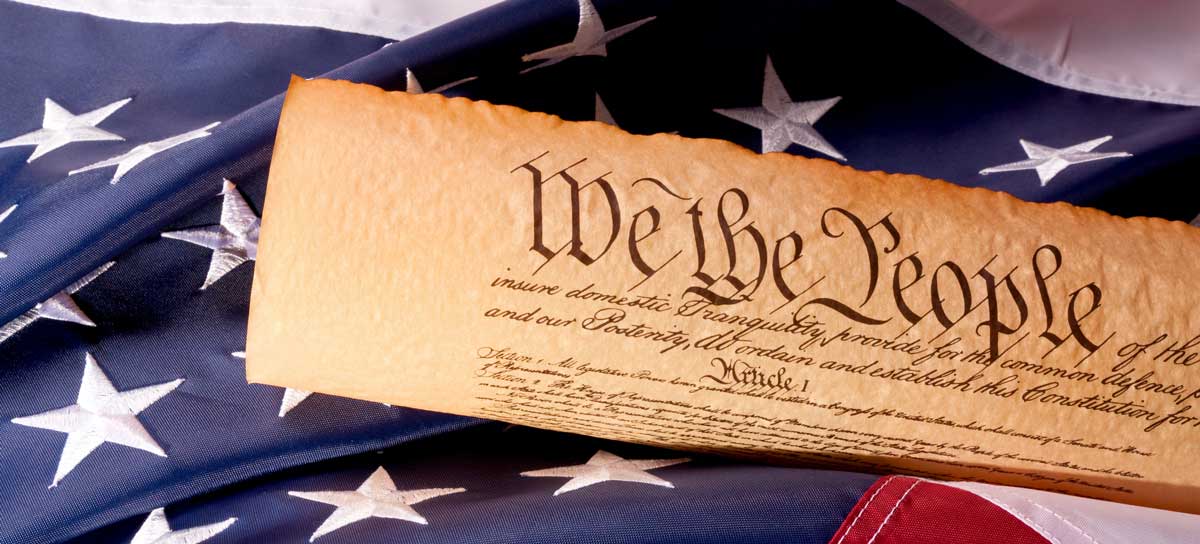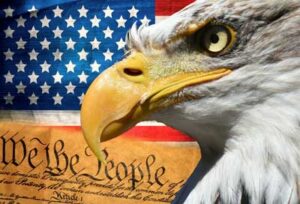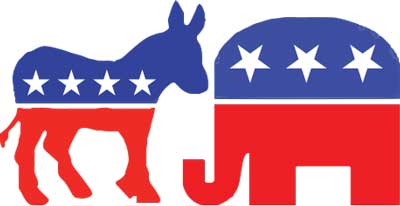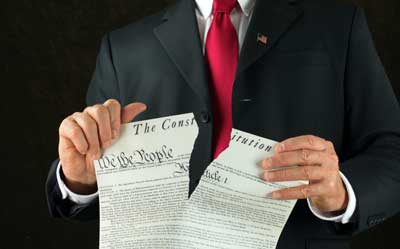
REPUBLICANS VS. DEMOCRATS
 The Democratic Party traces its origins to the anti-federalist factions around the time of America’s independence from British rule. These factions were organized into the Democrat – Republican party by Thomas Jefferson, James Madison, and other influential opponents of the Federalists in 1792.
The Democratic Party traces its origins to the anti-federalist factions around the time of America’s independence from British rule. These factions were organized into the Democrat – Republican party by Thomas Jefferson, James Madison, and other influential opponents of the Federalists in 1792.
The Republican party is the younger of the two parties. Founded in 1854 by anti-slavery expansion activists and modernizers, the Republican Party rose to prominence with the election of Abraham Lincoln, the first Republican president. The party presided over the American Civil War and Reconstruction and was harried by internal factions and scandals towards the end of the 19th century.
Since the division of the Republican Party in the election of 1912, the Democratic party has consistently positioned itself to the left of the Republican Party in economic as well as social matters. The economically left-leaning activist philosophy of Franklin D. Roosevelt, which has strongly influenced American liberalism, has shaped much of the party’s economic agenda since 1932. Roosevelt’s New Deal coalition usually controlled the national government until 1964.
The Republican Party today supports a pro-business platform, with foundations in economic libertarianism, and fiscal and social conservatism.
Credits: https://www.diffen.com/difference/Democrat_vs_Republican
 National Debt Clock
National Debt Clock
When the federal government spends more than it takes in, we have to borrow money to cover that annual deficit. And each year’s deficit adds to our growing national debt. Read More >
America’s Founding Documents

Declaration of Independence
In Congress, July 4, 1776
The unanimous Declaration of the thirteen united States of America, When in the Course of human events, it becomes necessary for one people to dissolve the political bands which have connected them with another, and to assume among the powers of the earth, the separate and equal station to which the Laws of Nature and of Nature’s God entitle them, a decent respect to the opinions of mankind requires that they should declare the causes which impel them to the separation.
Constitution
We the People of the United States, in Order to form a more perfect Union, establish Justice, insure domestic Tranquility, provide for the common defence, promote the general Welfare, and secure the Blessings of Liberty to ourselves and our Posterity, do ordain and establish this Constitution for the United States of America.
Bill of Rights
On September 25, 1789, the First Congress of the United States proposed 12 amendments to the Constitution. The 1789 Joint Resolution of Congress proposing the amendments is on display in the Rotunda in the National Archives Museum. Ten of the proposed 12 amendments were ratified by three-fourths of the state legislatures on December 15, 1791. The ratified Articles (Articles 3–12) constitute the first 10 amendments of the Constitution, or the U.S. Bill of Rights. In 1992, 203 years after it was proposed, Article 2 was ratified as the 27th Amendment to the Constitution. Article 1 was never ratified.
Credit https://www.archives.gov/
Political History
History of the Democratic and Republican parties

Socialism vs. Communism
 SOCIALISM
SOCIALISM
A theory or system of social organization that advocates the vesting of the ownership and control of the means of production and distribution, of capital, land, etc., in the community as a whole.
Credit: https://www.dictionary.com/
Karl Marx
in full Karl Heinrich Marx, (born May 5, 1818, Trier, Rhine province, Prussia [Germany]—died March 14, 1883, London, England), revolutionary, sociologist, historian, and economist. He published (with Friedrich Engels) Manifest der Kommunistischen Partei (1848), commonly known as The Communist Manifesto, the most celebrated pamphlet in the history of the socialist movement. He also was the author of the movement’s most important book, Das Kapital. These writings and others by Marx and Engels form the basis of the body of thought and belief known as Marxism. (See also socialism; communism.)
Credit: https://www.britannica.com/
Communism
A political and economic doctrine that aims to replace private property and a profit-based economy with public ownership and communal control of at least the major means of production (e.g., mines, mills, and factories) and the natural resources of a society. Communism is thus a form of socialism—a higher and more advanced form, according to its advocates. Exactly how communism differs from socialism has long been a matter of debate, but the distinction rests largely on the communists’ adherence to the revolutionary socialism of Karl Marx.
Credit: https://www.britannica.com/
Manifesto
Manifesto is related to manifest, which occurs in English as a noun, verb, and adjective. Of these, the adjective, which means “readily perceived by the senses,” is oldest, dating to the 14th century. Both manifest and manifesto derive ultimately from the Latin noun manus (“hand”) and -festus, a combining form of uncertain meaning that is also found in the Latin adjective infestus (“hostile”), an ancestor of the English infest. Something that is manifest is easy to perceive or recognize, and a manifesto is a statement in which someone makes his or her intentions or views easy for people to ascertain. Perhaps the most well-known statement of this sort is the Communist Manifesto, written in 1848 by Karl Marx and Friedrich Engels to outline the platform of the Communist League.
Credit: https://www.merriam-webster.com/
